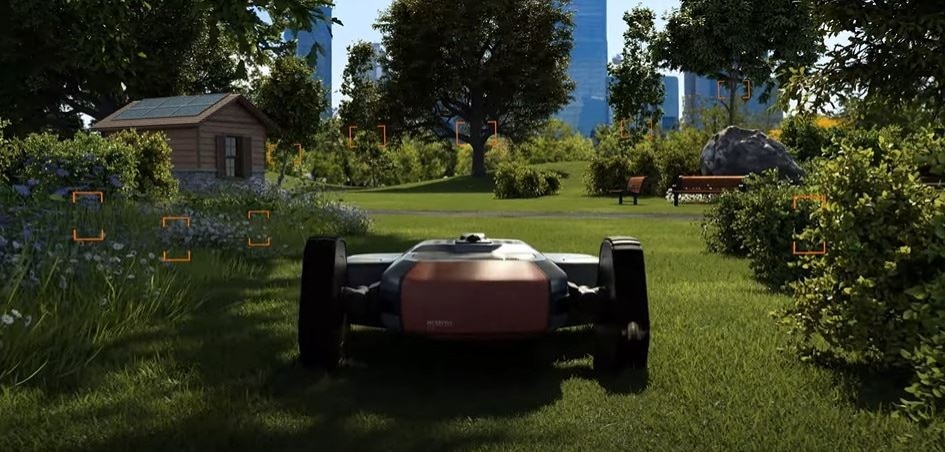Future cities need more green to be really sustainable and do their part to stop biodiversity erosion and tackle many other climate challenges.
However, the maintenance of urban green spaces is often limited not because of political will but rather because of a lack of qualified labor. Enter Strix, a concept solution envisioned by the robotic-mowing giant Husqvarna.
Unveiled as part of the company’s 2033 foresight, concept Strix aims to revolutionize professional landscaping solutions in cities.
Strix is not merely a robotic lawnmower but a suite of autonomous units equipped with several sensors and AI capabilities. These units can take care of traditional gardening activities like mowing, mulching, and edging, even delving into critical tasks such as identifying invasive species, re-seeding, and fertilizing. All of that for 24 hours, 7 days a week, minus the charging time.
What makes the Strix ecosystem disruptive in its approach is the ability to gather a vast array of data from above, on, and below ground, which is then used to guide robotic operators in real time, enabling informed decision-making regarding the health and management of green spaces.
To achieve this goal, Husqvarna developed a new “sensing” platform to obtain an all-encompassing understanding of the urban green space in which the robots operate. This data can also be shared with other human or robotic operators through smartphones, augmented reality glasses, and smartwatches. The idea is to create a symbiotic relationship between humans and machines, each augmenting the other to achieve a common goal of greener urban landscapes.
Moreover, the data collected by Strix operators enables the creation of a digital twin of a city that decision-makers can use to evaluate and forecast the health and well-being of the urban environment. This includes the potential to predict carbon dioxide levels, assess water management strategies, and calculate the health and value of trees. This digital twin allows cities to better plan changes, new projects, and urban intervention in their green spaces, always evaluating their potential impact in real-time or with AI-powered estimates.
Husqvarna expects that the machine composing a Strix fleet would also be sustainable in themselves. They would be produced with recycled materials and powered by solar energy, thus creating a closed-loop system that minimizes the carbon footprint of the entire platform. Easy upgrades, servicing, and repairs are also part of the long-term vision that Husqvarna is eager to bake into the Strix platform.










